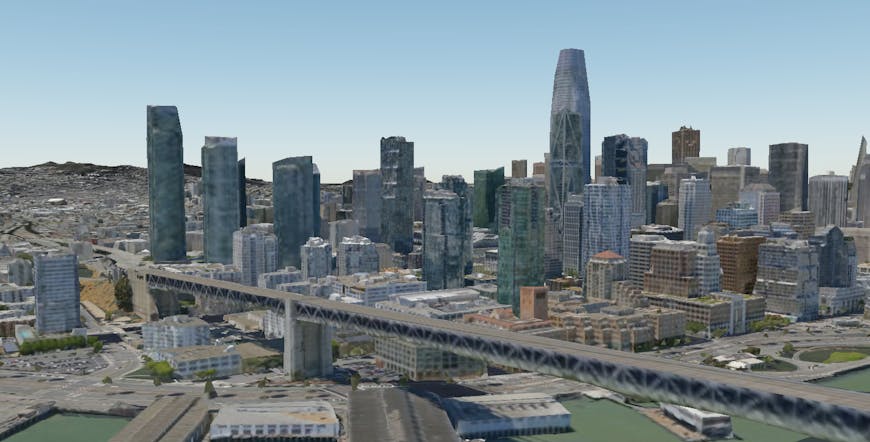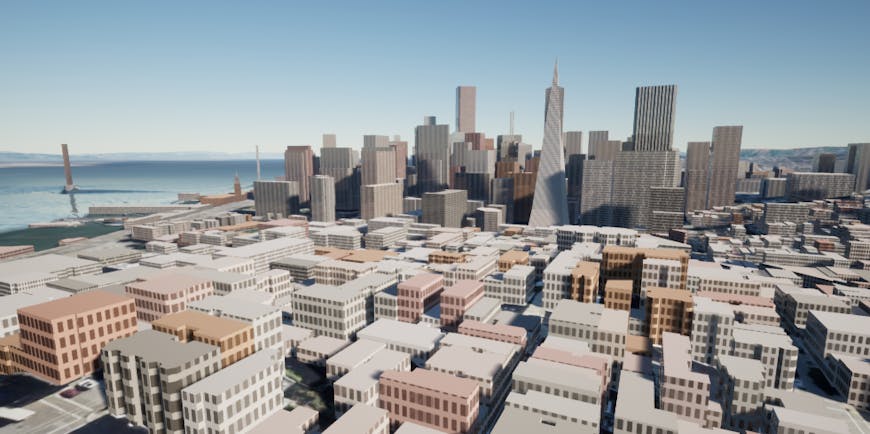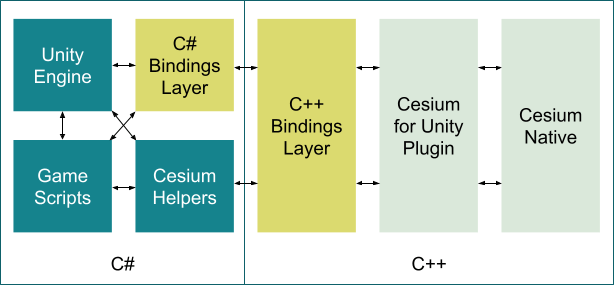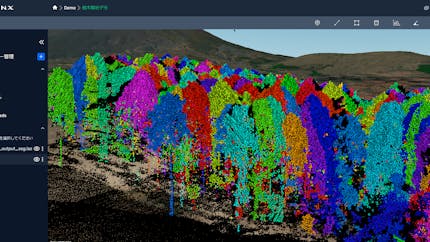Cesium Releases in February 2023
CesiumJS 1.102 Release
CesiumJS 1.102 is now available. CesiumJS now defaults to using a WebGL2 context for rendering. WebGL2 is widely supported on all platforms and this results in better feature support across devices, especially mobile. WebGL1 is still supported. If WebGL2 is not available, CesiumJS will automatically fall back to WebGL1.
Other highlights of the release include:
- Added
FeatureDetection.supportsWebgl2to detect if a WebGL2 rendering context is in the current browser. - Fixed a bug decoding glTF Draco attributes with quantization bits above 16. #7471
- Fixed label background rendering. #11040
For more details, see the changelog. You can also subscribe to the Cesium roundup release thread on the community forum to get notifications about our monthly releases.

This release includes a new Sandcastle showcasing the high resolution Aerometrex San Francisco dataset.

Procedural windows on Cesium OSM Buildings in Cesium for Unreal.
Other highlights this month include:
- Added support for the
KHR_materials_unlitglTF extension. This is rendered in Unreal Engine by disabling shadows and making all normals point up (along the ellipsoid surface normal). - Fixed a bug that caused raster overlays and other material features to not work for materials created or saved in Unreal Engine 5.1.
Check the Cesium for Unreal (UE4) release, the Cesium for Unreal (UE5) release, and the Cesium for Unreal Samples release, for the full list of updates.
Cesium for Unity 0.2.0 Release
The Cesium for Unity preview has been updated. Highlights of the release include:
- Added
CesiumCameraController, a globe-aware controller that adapts its speed and clipping planes based on its height from the globe. - Added
CesiumFlyToController, a controller that can smoothly fly to locations across the globe. - Added support for building to iOS and Android x86-64 devices like the Magic Leap 2.
Check the changelog for the full list of updates, and follow our Cesium for Unity tutorials to get started.
This month we also published a blog post by Kevin Ring about developing Cesium for Unity. Extending the engine required code in C#, but Cesium Native is C++. To solve the challenge, we developed Reinterop and released it as open source.

Architecture of the interop between Cesium Native and Unity.
